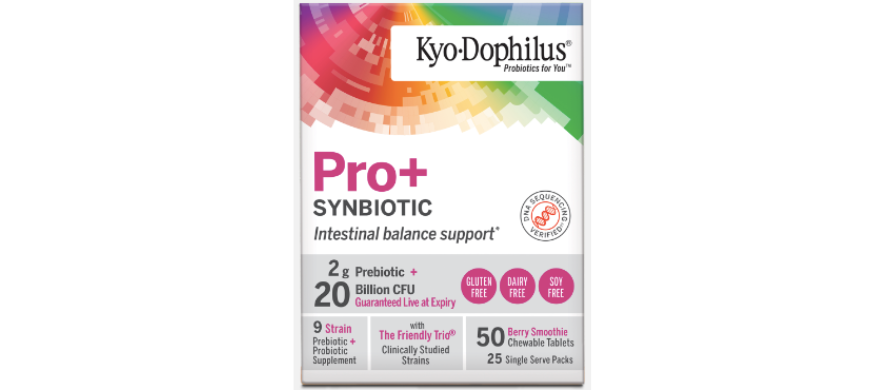Did you know that once upon a time, the dreaded hay fever we associate with warmer seasons wasn’t considered common? Among other maladies we now recognize as seasonal allergies, this was once seen as an aristocratic disease that afflicted few everyday people.
Today, we only have to visit our local drugstore aisles to see that this is no longer the case! Medical remedies abound to meet the needs of our modern world, where one in four North American adults suffer from seasonal allergies and the allergy market tops the $1-billion mark. What might have changed, and how can we protect ourselves before the sneezing starts? To solve a big piece of this puzzle, we can look to the gut!
Compromised Immune Systems & Seasonal Allergies
If you count yourself as part of that allergy statistic, you probably know the frustration of being thrown into congested, itchy overdrive during the greener seasons. But what’s the link between the need for that box of tissues and your gut? The gut and immunity relationship has been increasingly studied in recent years, leading many experts to identify a balanced, biodiverse microbiome as a key factor in immune function and overall health. This impacts the way seasonal allergies show up too.
When we come into contact with allergens like pollen or dust, the immune system is naturally programmed to go into “attack mode” to protect us. This should be a good indicator of health, but compromised immune systems are often over-reactive, aggressively charging at every passing threat with the release of histamines, chemicals that repel allergens through mechanisms like sneezing. Many of us look desperately to antihistamines to alleviate symptoms, but these come with a host of their own side effects.
The “Dirt” on Diet & Allergen Levels
With no signs of slowing, the seasonal allergy market is predicted to more than double to become a $2.5-billion industry by 2033. Every allergy sufferer’s story has unique elements, but general factors that may contribute to these climbing statistics include changing diets and environment.
Our microbiome is shaped significantly by the food we eat, with rapid shifts observed in microbiota alongside dietary habits. One study even showed marked changes to gut diversity in healthy participants after only a single day of eating an animal-based diet; a plant-based switch yielded similar results. Plant-based diets may be one key to better gut diversity, but even the average North American soil in which we grow today’s produce has less biodiversity compared to the past; unsustainable farming practices in the post-industrial era shoulder part of the blame. Considering the sensitivity of our gut’s make-up and its links to immunity, the implications of eating a modern Western diet—infamous for its reliance on over-processed and nutrient-poor foods—become clearer.

Of course, we also can’t ignore the “boogeyman” that haunts many modern problems: climate change. The USDA cites human causes as a main culprit behind today’s longer allergy seasons and a 21 percent increase in pollen since just 1990; thanks to global warming, plants' inner alarm clocks now go off earlier, producing more pollen and more reasons to itch, sneeze, and sniffle.
Fight Seasonal Allergies with Synbiotics
Our everyday food sources and environment might seem to work against us, but there are still natural ways to be proactive against seasonal allergies. One easy health support is synbiotic supplementation, a two-in-one solution that combines probiotics with prebiotics. Found in many fermented foods we often don’t consume enough of, probiotics are highly gut- and immune-supportive. Prebiotics are the “helper” foods that fuel probiotic populations. Let’s take a look at some of the best biotic strains that can be found together in a proprietary blend known as The Friendly Trio.
Combining probiotics and prebiotics
Lactobacillus gasseri is known to support gastrointestinal and immune function. Research also suggests this probiotic can reduce airway inflammation for those with allergic asthma, which often worsens this time of year. In a study of L. gasseri supplements on mice, researchers found it stemmed the influx of pro-inflammatory cells to airways and suppressed hyper-active responsiveness to allergens for easier breathing.
Bifidobacterium bifidum helps regulate healthy gut flora and reduce inflammation for better immunity. In the body’s fight against threats, this probiotic has been shown to modulate the immune system’s “recruitment” of white blood cells; more may be rallied against an infection, for instance, whereas fewer are called to repel a simple allergen. A study of B. bifidum in guinea pigs further indicated it may help reduce nasal symptoms (like sneezing and stuffy noses) associated with allergic rhinitis (hay fever).
Bifidobacterium longum is known for normalizing bowel movements, but it may also be beneficial for managing allergies. Dust mites are one of the most common allergens that even set up camp in most household mattresses. Population levels often grow in warm seasons, but research indicates B. longum may alleviate hay fever symptoms caused by this nearly unavoidable trigger.
Both Lactobacilli and Bifidobacteria are noted across research to be more prevalent in the gut flora of non-allergic children. This suggests not only that healthy exposure to diverse bacteria can have far-reaching implications on immunity, but also how some can work wonders as a team. For instance, an 8-week study of this probiotic duo on healthy adults during spring showed promising results. Compared to a placebo group, those receiving the probiotic blend reported fewer allergy symptoms, and supporting DNA samples revealed good gut bacteria growth. This particular combination of probiotics was also recognized for its effectiveness against allergies compared to other blends.

Alpha-glucan oligosaccharide is a sugar-derived prebiotic. Found in many vegetables, fruits and whole grains, prebiotics are dietary fibre the body can’t digest. Arriving intact in the gut, they’re fermented by microorganisms and release nourishing by-products that feed good bacteria. Prebiotics have varying synergistic effects depending on the probiotic strains they’re paired with, but this strain is especially supportive of Lactobacilli and Bifidobacteria populations.
Supplement with The Friendly Trio
In your search for a better solution to seasonal allergies, consider trying Kyo-Dophilus Pro+ Synbiotic. This supplement is specially formulated with an alpha-glucan oligosaccharide called BioEcolians and nine probiotic strains, including The Friendly Trio. With the added bonus of overall immune and digestive support and extended live cell viability without refrigeration, you can tap into daily allergy-fighting benefits with a simple chewable tablet—no time in the kitchen required.

Our world and busy lives may not be built for optimal health, but with a little gut and immunity boost, you might find yourself enjoying more of this beautiful season and beyond.

Since its establishment in 1972, Wakunaga of America Co., LTD has played a unique role in promoting consumer health worldwide through the research, development, manufacturing and marketing of high quality medicinal herbs and dietary supplements. The corporate philosophy of Wakunaga centers on a commitment to research and a mission to serve public health. This mission is accomplished by providing products of the highest quality, which are supported by science. Brands include Kyolic AGE, Kyo-Dophilus Probiotics and Kyo-Green Superfoods.







